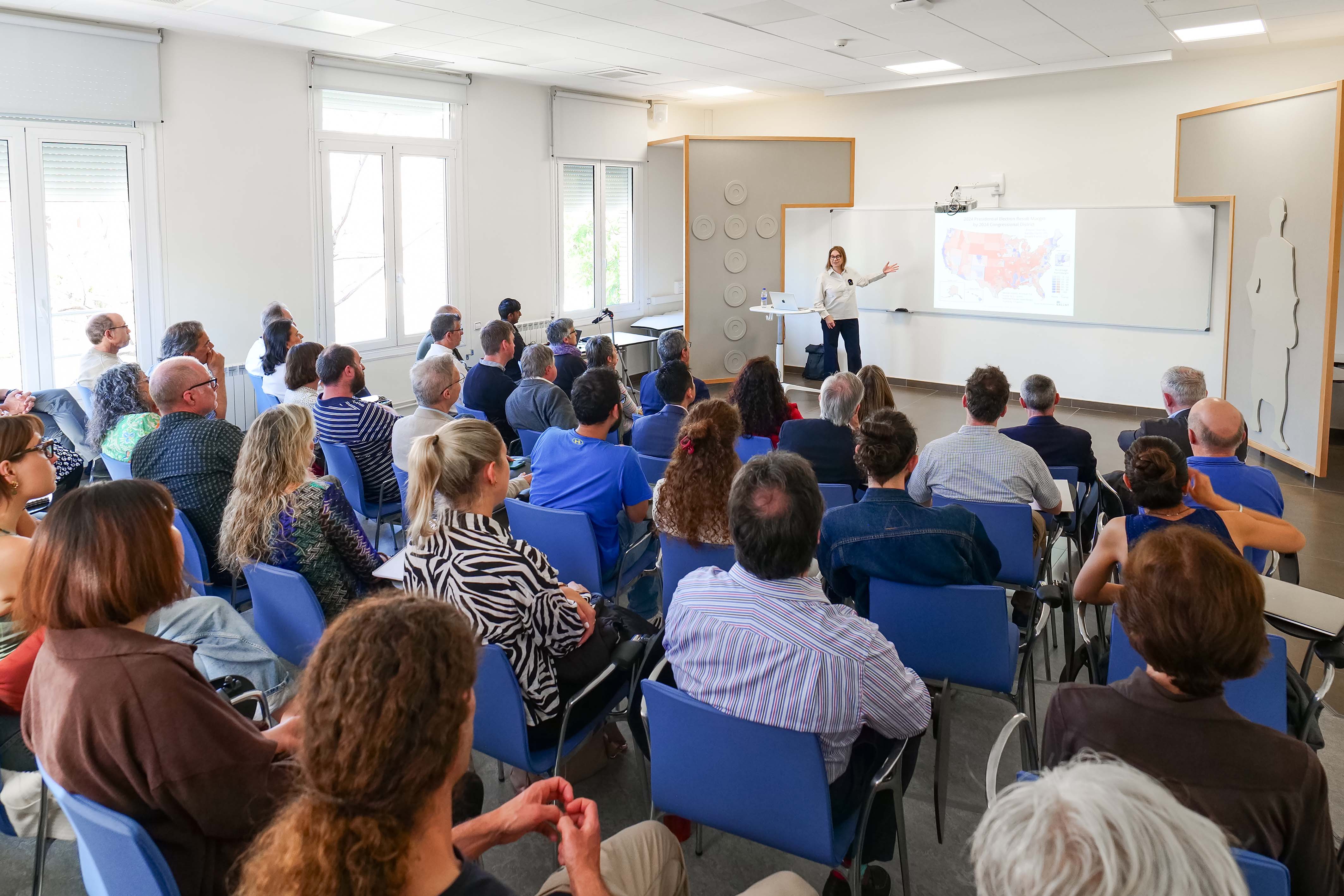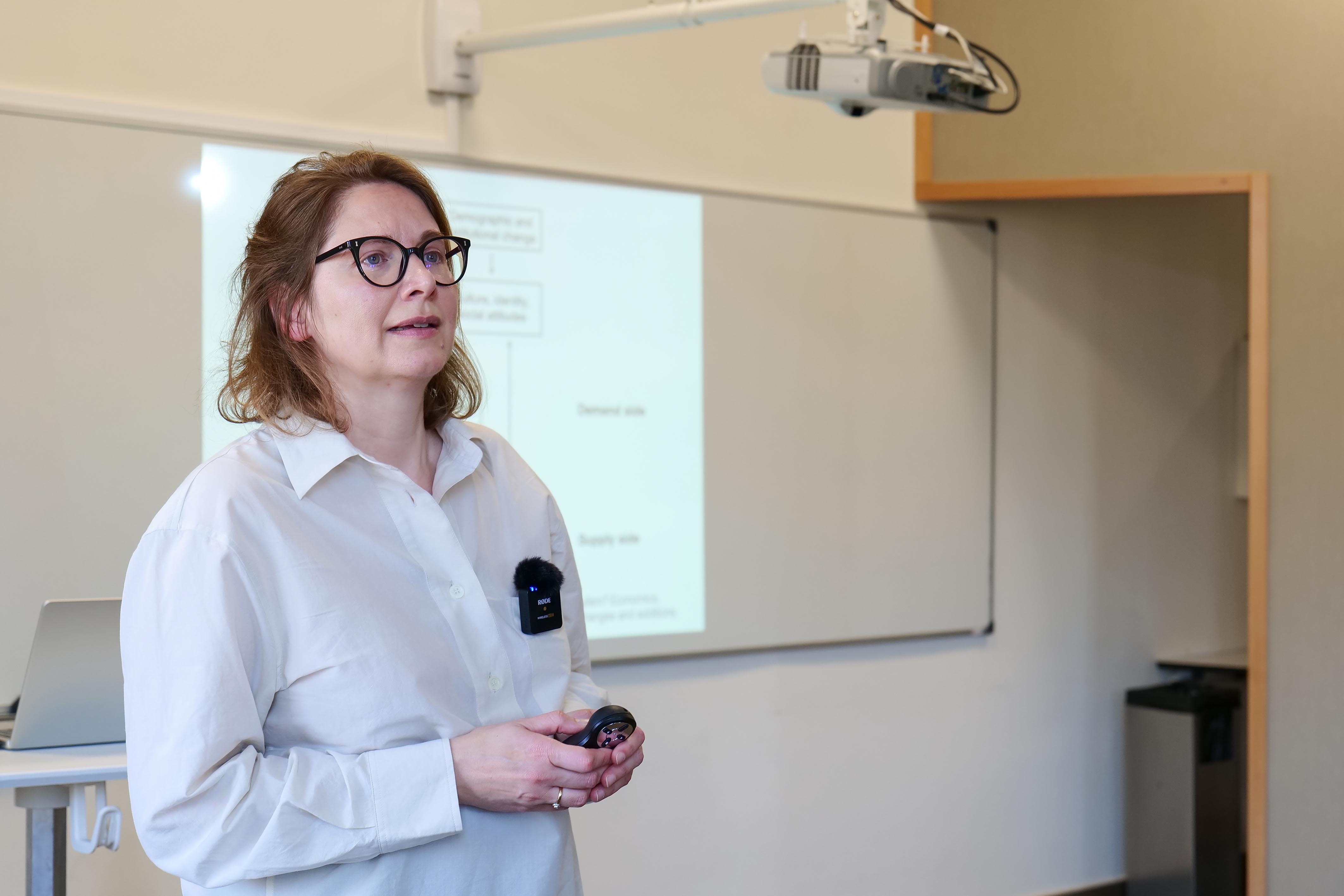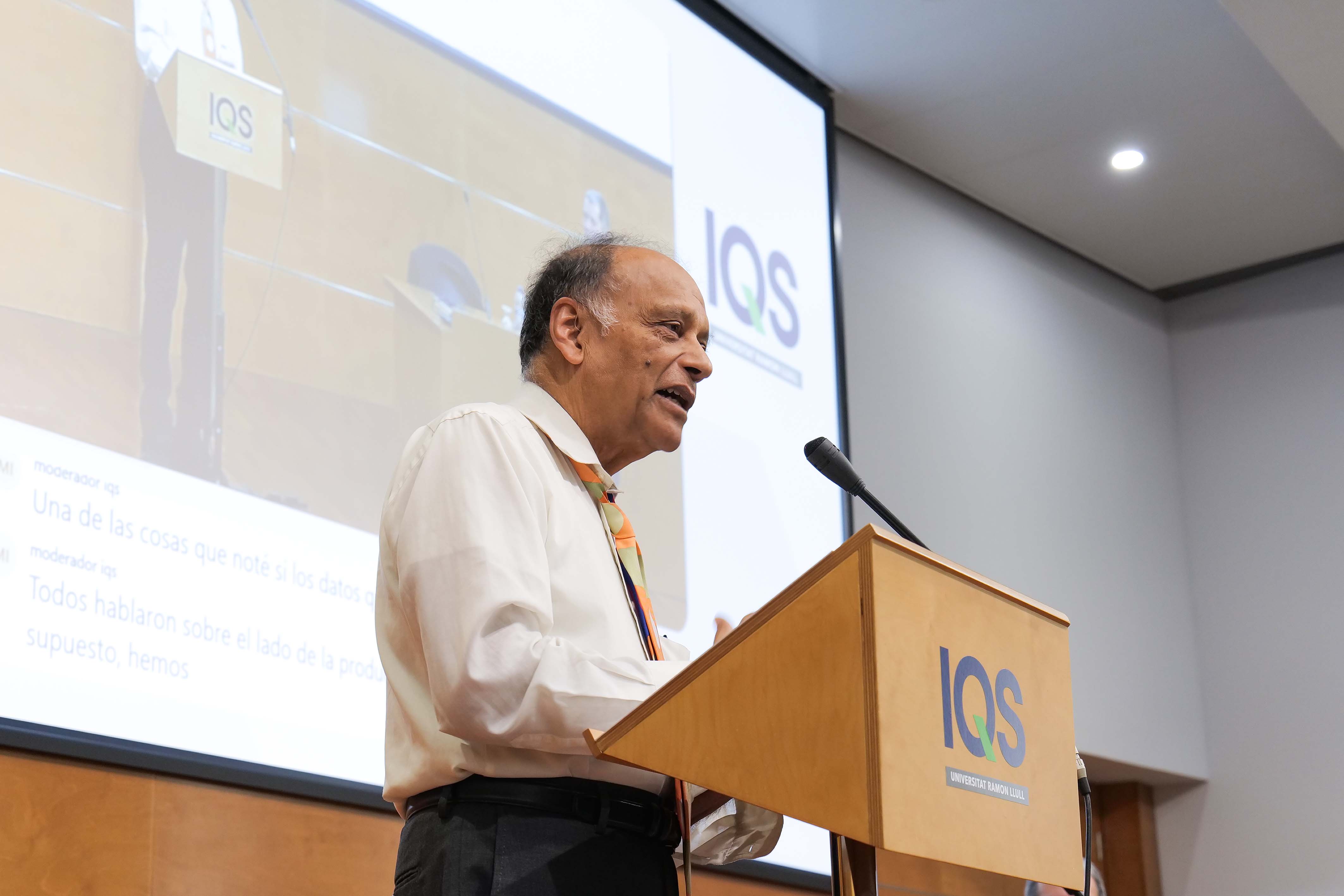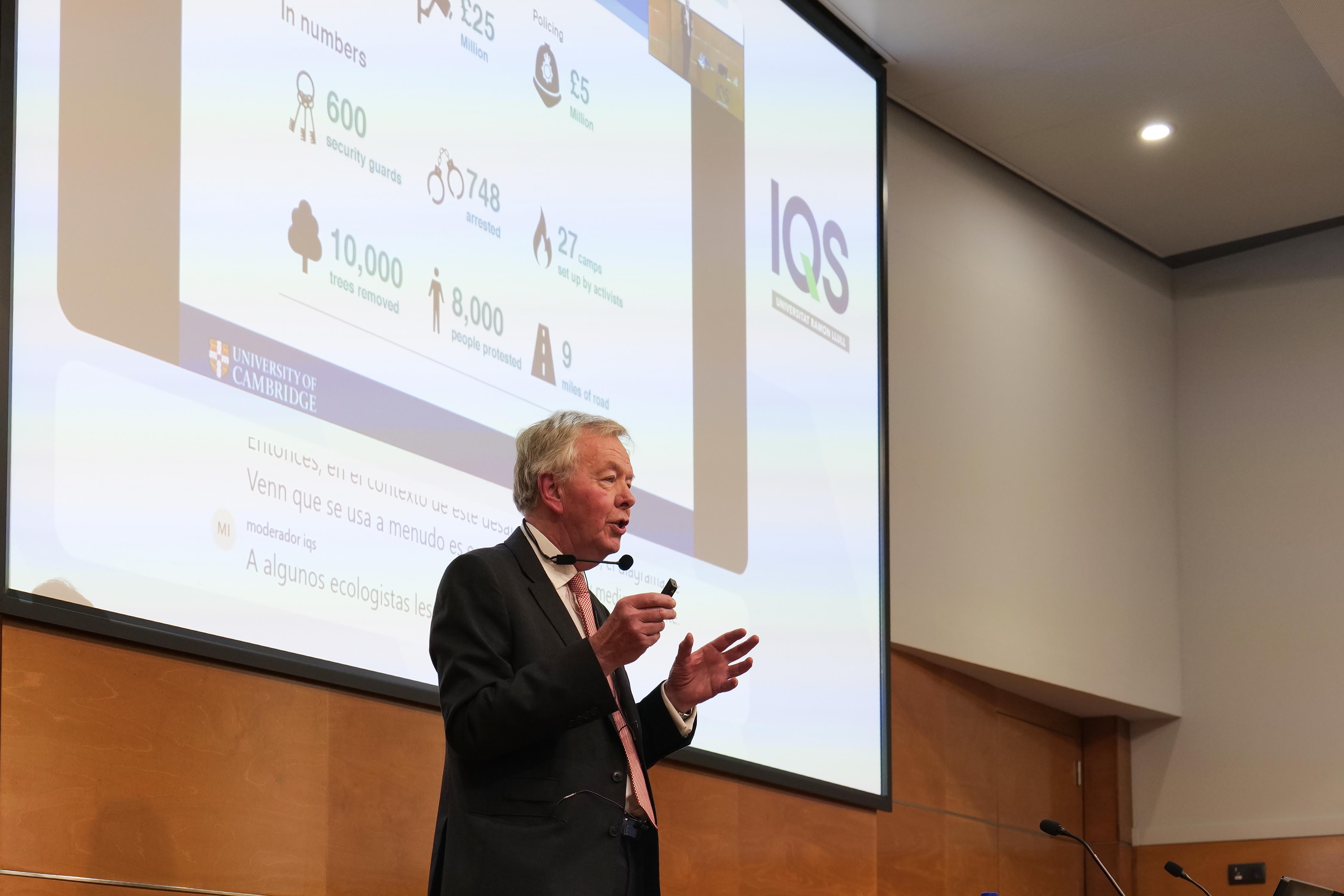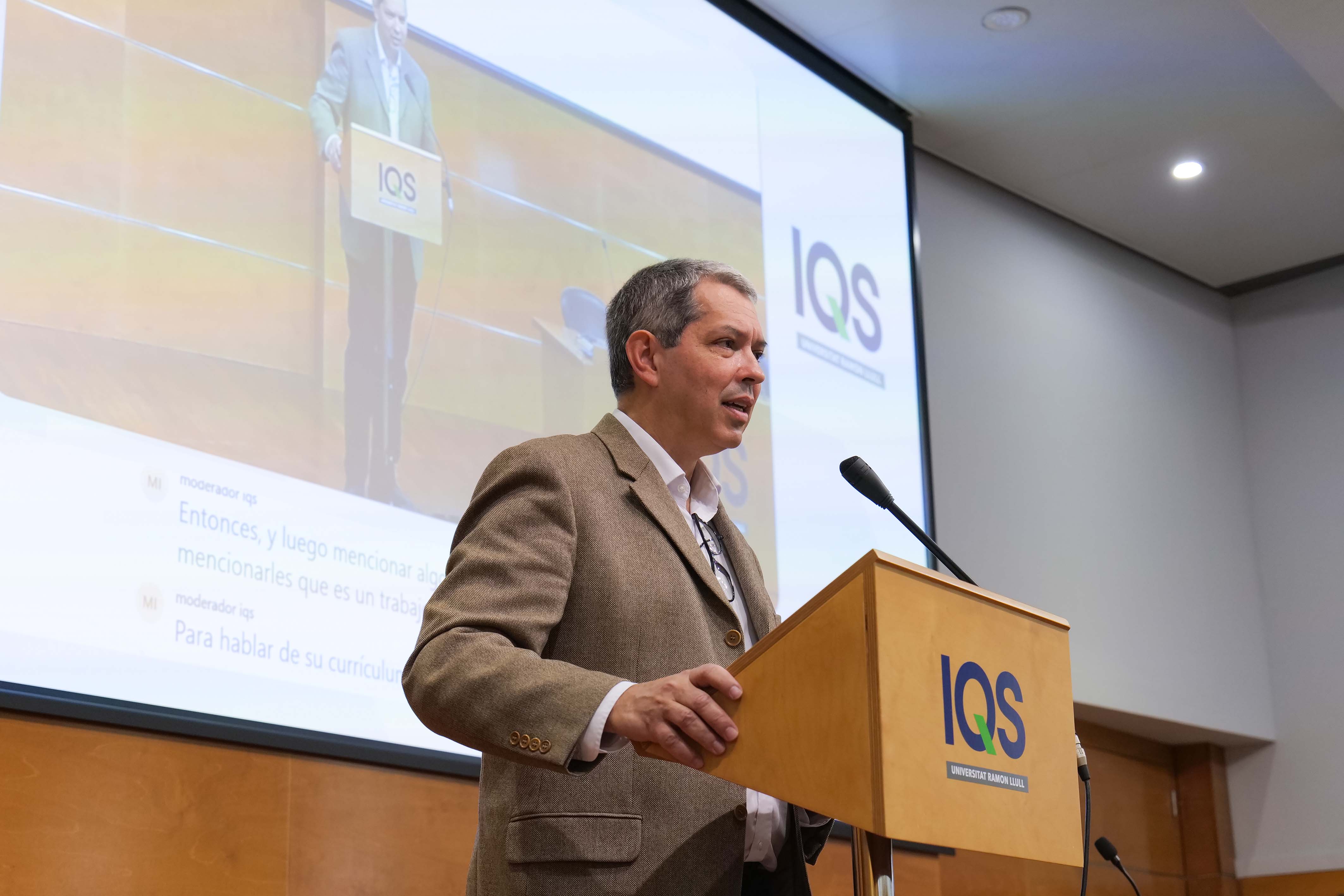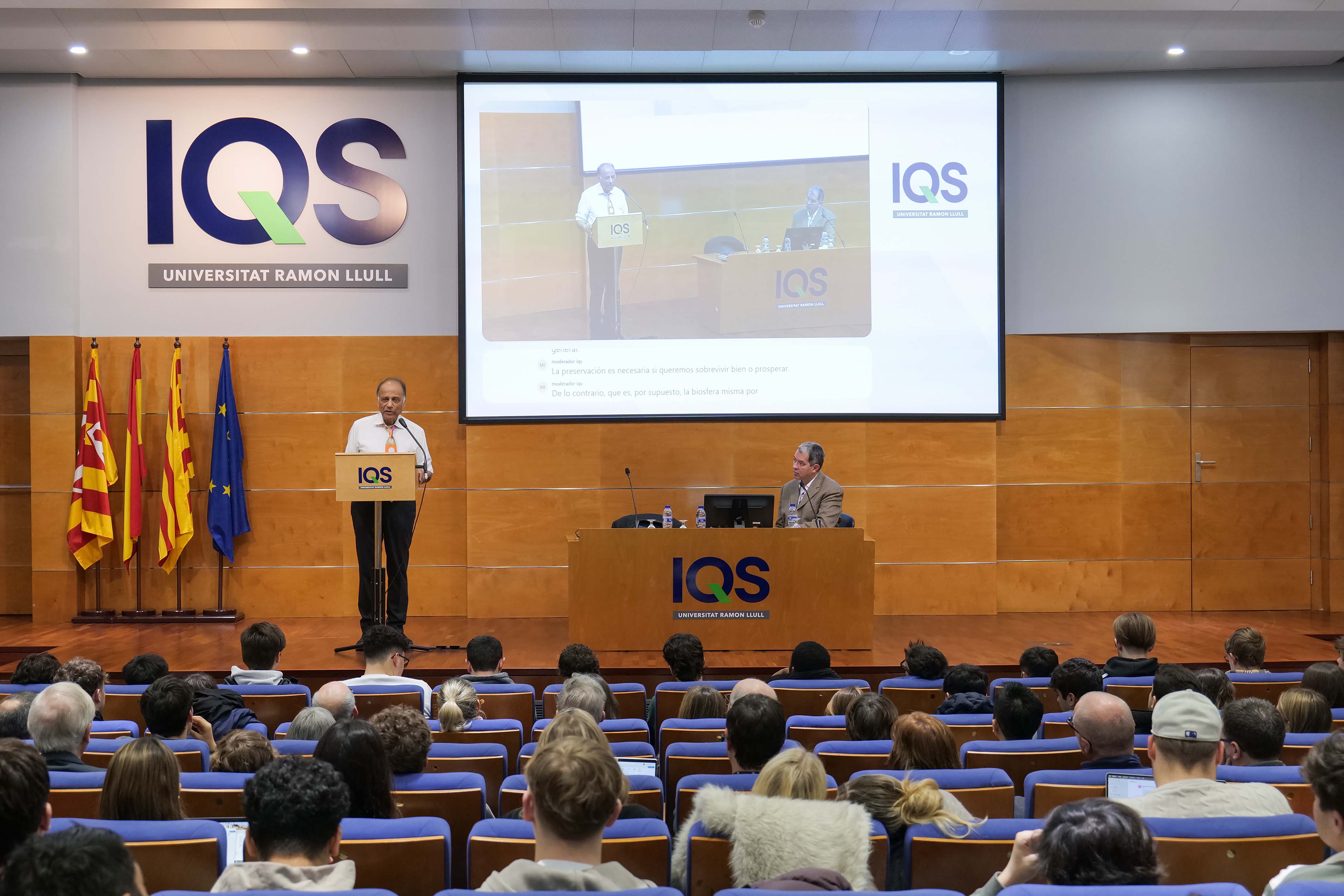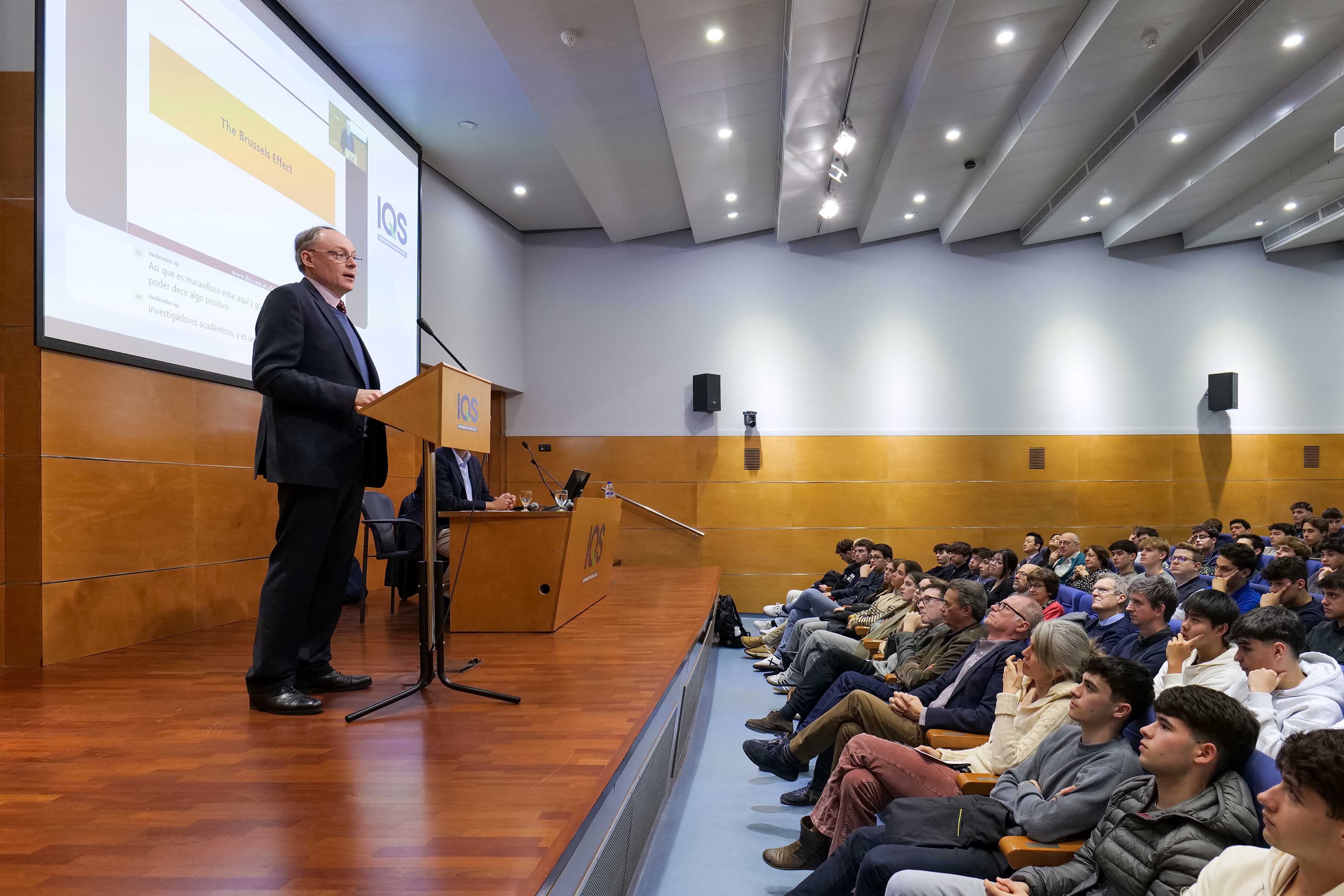The IQS School of Management has inaugurated the IQS Cambridge Talks conference series in academic year 2024-2025, a new initiative open to the public that aims to offer an academic forum to explore and debate cutting-edge topics in engineering, management, sustainability, and economics. This new programme has featured participation by leading international experts associated with the University of Cambridge, gaining recognition as a widespread success since its first edition, with great attendance at the four sessions that have been organised.
IQS Cambridge Talks: a space for academic excellence and international reflection
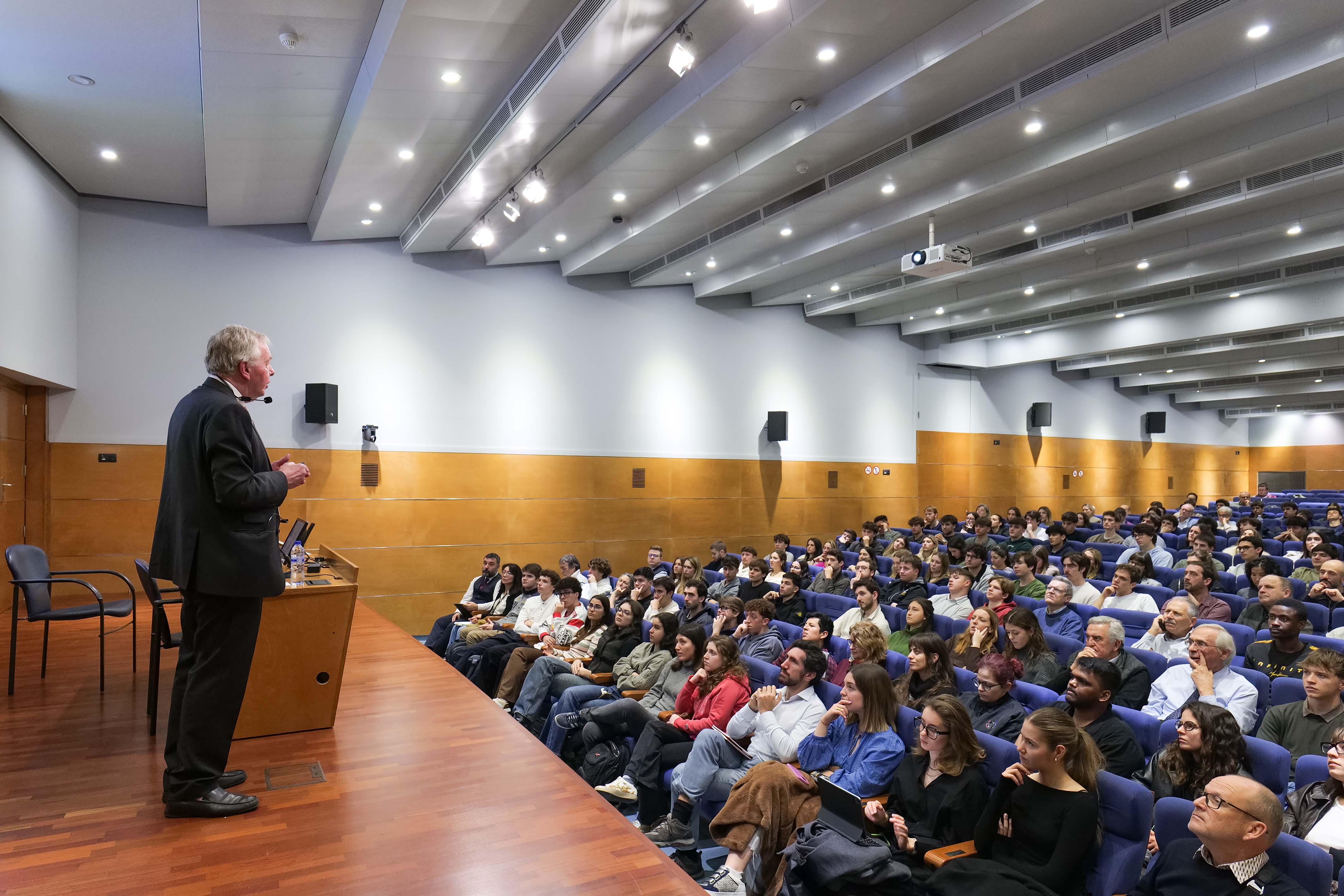
Dr Flavio Comim, Dean of the IQS School of Management and sponsor of the initiative, said “with this proposal we wanted to bring excellence to key areas such as sustainability and innovation. We have had the honour of having exceptional speakers from the University of Cambridge, and we have encouraged participation by both our university community and other institutions in the area, making it a truly enriching experience.”
Sustainable infrastructure
The inaugural lecture was given by Professor Peter Guthrie, who spoke about the topic “Delivering Sustainable Infrastructure: The Challenge of the Paradox.” In his speech, he reflected on the challenges of designing resilient infrastructure in a changing global context. Based on his experience with large-scale projects, he analysed the impact of climate change and the urgency of reconsidering infrastructure design to ensure it is sustainable and adaptable to extreme events.
Ecological economics and climate policy
In March, the cycle continued with the participation of the prestigious economist Sir Partha Dasgupta, the Frank Ramsey Professor Emeritus of Economics at the University of Cambridge. Recognised as one of the leading global minds in ecological economics, he presented the conference “Economic Possibilities in the Anthropocene,” in which he analysed the economic challenges and opportunities facing the Anthropocene era, marked by the impacts of human activity on the planet. His presentation offered a deep and committed vision of the need to rethink the economic model based on sustainability, which was also reflected in the interview he later gave to the La Vanguardia newspaper.
The March cycle also featured participation by Professor Michael Pollitt, an expert in energy policy and regulation. In his presentation “The Brussels Effect and Global Climate Policy: How the EU Can Help and Hinder Effective Decarbonisation,” Pollitt explored the impact of European policies on the global climate agenda by addressing issues such as the regulation of public services, privatisation, and the interaction between business ethics and economic policies.
Economic geography and regional inequality
The last conference of the cycle took place in April and was led by Professor Maria Abreu, a renowned researcher in economic geography at the University of Cambridge. In her speech “The Geography of Discontent: How to Address the Challenge of Left-Behind Places,” Dr Abreu analysed the growing discontent in regions that have been left behind as a result of globalisation. She offered clues on how public policy can contribute to reducing these regional inequalities through innovative and equitable approaches.










